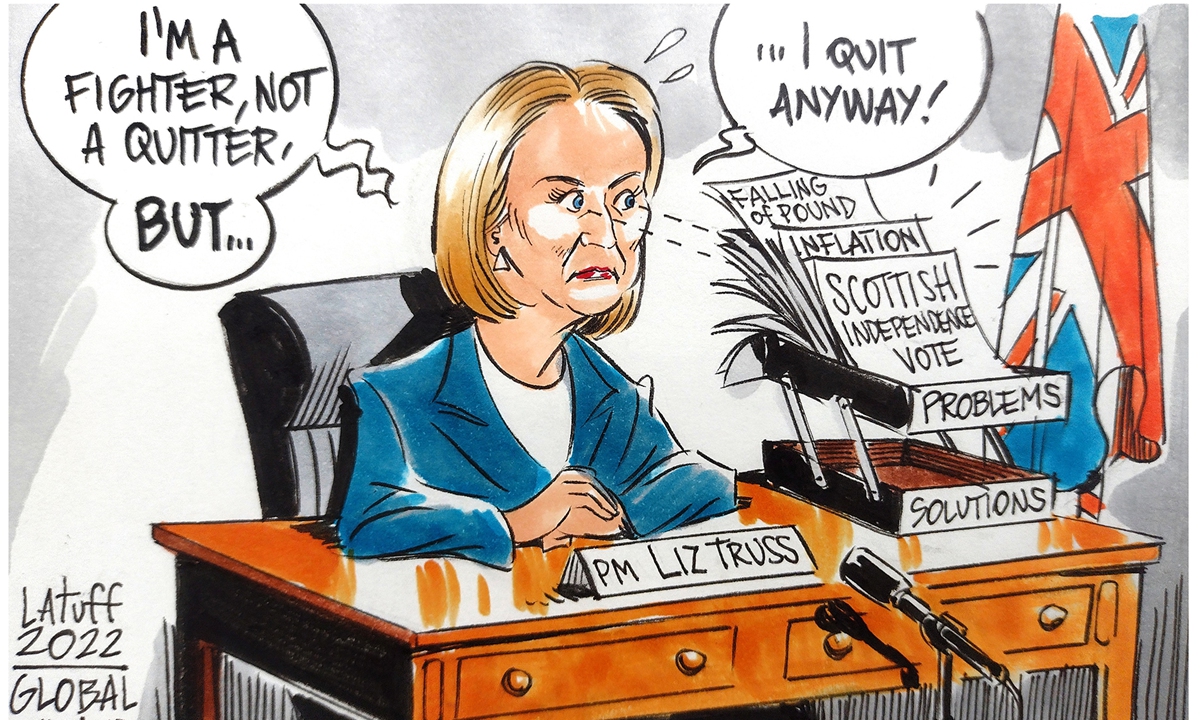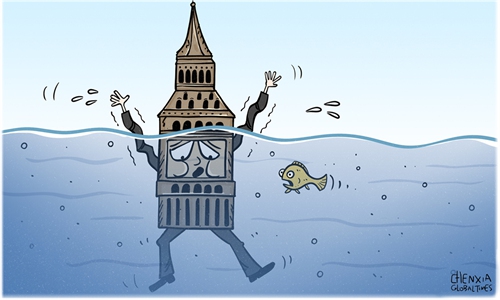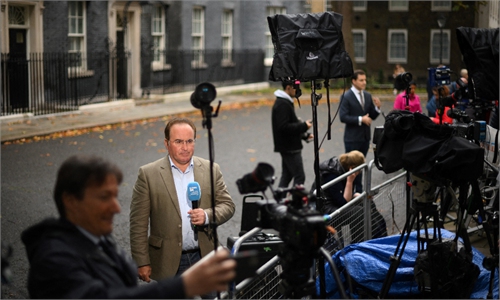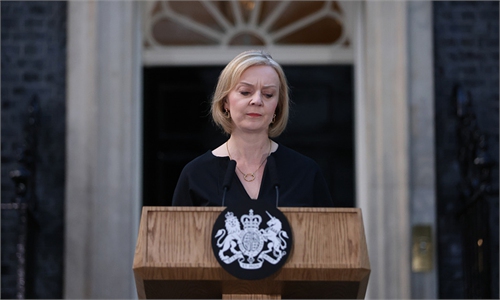
Liz Truss's final U-turn. Cartoon: Carlos Latuff
While expectations of Truss as prime minister were minimal, few could have anticipated that it could have ended so abruptly, so disastrously and hilariously to the point it has delivered a colossal blow to Britain's overseas reputation and credibility on the world stage. Worse still, the farce is not yet over with widespread reports in the British press that Boris Johnson is contemplating re-running as leader. The situation is so absurdly ridiculous that it could not have even been conjured up by the finest of satirists.
One might be wondering "how" exactly did the UK get in this situation, where politics has descended into both a disaster and a joke. The answer is simple. Starting with the events of 2016, British Politics has lost all sense of pragmatism, common sense and reason in a self-absorbed trajectory which has seen identity and ideology become the primary driver of politics. The 2016 Brexit referendum dealt a decisive fracture to the British political landscape which destroyed the more liberal and pragmatic politics of the David Cameron government, driving the Conservative party rightwards, and in turn upending its own stability.
Since that time, the prevailing ideology of the party has consolidated into a mix of growing nationalism and rabid neoconservatism, whilst going through an ever-revolving door of leaders which will soon usher in Britain's 4th prime minister since 2019. There is no individual more manifesting of this "new consensus" than Liz Truss, who had built her rise to power not on qualifications or competence, but on the sand of nationalistic and ideological talking points, an embodiment of the Brexit brand. She was voted in not by the British public, but a small cohort of Conservative Members which she ticked the ideological boxes of. Her immediate and abrupt fall from grace is only demonstrative of how the British government is now completely void of any reasonable or sensible thinking, producing an epic political disaster.
Liz Truss's short-lived tenure, however, has provisionally saved the UK from a great deal of harm. If her catastrophic "mini-budget" was anything to go by, Truss had a lot more damaging policies in store, including for that matter a hunger for confrontation against China. In her final week of office, she was preparing to formally designate Beijing a "threat" to the UK, had the Ministry of Defence leak allegations that British pilots were being paid to train their Chinese counterparts, and exploited a conflict started by Hong Kong rioters in Manchester to smear China. It is incredibly lucky she was never given the opportunity to consolidate her full, Cold-War laden, foreign policy vision.
In which case, the Conservative Party should ideally now take a look at its surging unpopularity and realize that this saga has been a hard lesson in the consequences of self-destructive policies led by ideology and nationalist talking points, rather than reason. Once described as "the natural party of government," the Conservative Party should return to sensible, pragmatic, and reasoned realpolitik. But in the world we live in now, there is no guarantee of that. The fact that Boris Johnson can even show his name as a potential candidate again, despite everything, indicates this circus is not over yet, and the same Conservative Membership who selected Truss will be selecting her replacement. Meaning whoever is in the best interests of the UK is not likely to make the grade.
Finally, this saga is a sorry story of Britain's decline. It is a saga which describes how in facing national decline, the United Kingdom has been beset with growing political polarization and identity conflict, which has in turn created political instability. The rise of these Brexit cladded politicians represents a Britain that has never come to terms with the decline of its empire, or its place in the modern world. Outside of this farcical show at Westminster, there are very few reasons to be optimistic concerning the outlook for economic growth, or even for that matter the survival of the union itself. There is nobody who stands as a greater embodiment of all these failures than Liz Truss. History is likely to remember her unkindly, as an unfortunate by-product of these accumulative political crises that stem from a deeply disillusioned, divided and dissatisfied country.
The author is a political and historical relations analyst. opinion@globaltimes.com.cn



